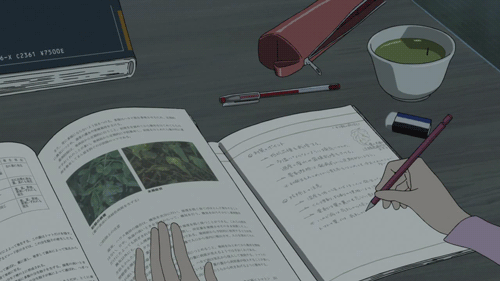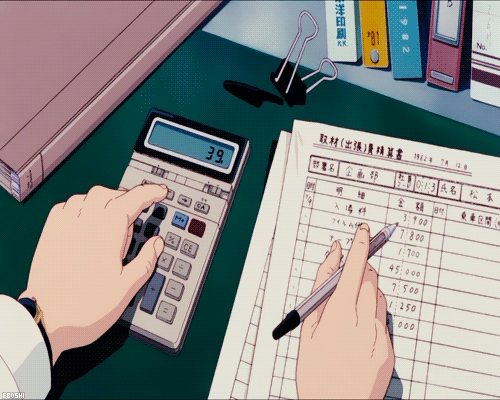#slavic langblr
Explore tagged Tumblr posts
Text
Autumn in Czech
Hey guys, autumn is in full swing in the Czech Republic so I thought it's time for some autumn vibes and vocabulary! Enjoy~

podzim (m)- autumn
list (m) - leaf
strom (m) - tree
mrholení (n) - drizzle
déšť (m) - rain
bláto (n) - mud
kaluž (f) ; louže (f) - puddle
deštník (m) - umbrella
kabát (m) - coat
pláštěnka (f) - raincoat
šála (f) - scarf
čaj (m) - tea
kakao (n) - hot cocoa
svíčka (f) - candle
krb (m) - fireplace
dýně (f) - pumpkin
kaštan (m) - chestnut
šípek (m) - rosehip
září (n) - September
říjen (m) - October
listopad (m) - November
počasí (n) - weather
špatné počasí (n) - bad weather
Verbs:
pršet – to rain
zmoknout - to get wet from the rain
Phrases:
venku je zima – it is cold outside
venku prší – it is raining outside
venku je ošklivě – it is bad weather outsider
Czech proverbs:
počasí že by psa nevyhnal – weather that one couldn't even get the dog outside
meaning that the weather is so bad, that even the dogs (who usually love to be outside) do not want to go outside
* f = feminine, m = masculine, n = neuter

#langblr#czech#czech language#czech vocabulary#czech vocab list#czech vocab#languages#multilingual#language learning#studyblr#polyglot#language blog#language#slavic languages#slavic langblr#slavic#vocabulary#vocab#vocab list#autumn#autumn leaves#autumn aesthetic#fall leaves#fall#fall vibes#multilingualpotato
44 notes
·
View notes
Text
hey did you know that i had translated some bits of the Bible into Polabian language? (Polabian is a now extinct West Slavic language that was located around Elbe river in Germany).
maybe someday ill translate more, but recently i have no energy for anything, so... bluh!
beginning bits of the Genesis story:

beginning of the Tower of Babel story:

#wenska rec#wenska#polabian language#polabian langblr#polabian#langblr#:3#slavic langblr#my translation
11 notes
·
View notes
Text
Funniest thing about the "chai tea" meaning "tea tea" to me is that I'm Czech and the Czech word for tea is "čaj" which is pronounced "chai" and you know what we actually - no joke - call chai tea?
"chai čaj"
We literally call it chai chai we DO call it tea tea we literally pronounce it chai chai it's a thing
#atsv#spiderman across the spiderverse#across the spiderverse#spider man across the spider verse#chai tea#spider man india#pavitr prabhakar#atsv pavitr#slavic#czech#linguistics#languages#langblr
7K notes
·
View notes
Text
the cruelest thing about the world is that there's so many languages and a girl can't learn all of them
#legit have like 5 things open at once and i'm losing my mind#slovenian and english are locked down#german is far enough to function in so that's fine#but then i have a 50 day streak of swedish (cause it's my fav country to visit)#and i've done like three monthly spurts of russian (cause it sounds so pretty and also slavic so it's not that hard)#and i've done asl for years and love it more than anything#and i fully plan to start in-person classes for slovenian sign (so it'll actually be useful here and great if i come across deaf patients)#anyways. having a good one#my brain is screaming to stop and do one at a time but i don't have the discipline for that#noodle rambles#language stuff#langblr
218 notes
·
View notes
Text
Mogolian Language Resources
I finally got around to combining and sorting through the various material, so here are the materials that I currently use!
Memrises Mongolian 1/Mongolian 2 Great courses for learning the alphabet (the non-traditional Cyrillic script) and some basics e.g. introduction, some basic verbs.
CJV Langs Traditional Mongolian Script. A solid intro to the traditional writing script. I'm sticking to the cyrillic script for now, but this may come in useful in the future.
Open163 Mongolian Basics (Chinese). Another great video course from Inner Mongolia University for learning mongolian basics and pronunciation. The only possible issue is that it's entirely in Chinese and the traditional script is used.
MGL Radio. My level isn't high enough to understand it, but for now it's good to understand how spoken mongolian sounds and later for listening practise.
Radio Garden. This site allows you to listen to various radio programs from pretty much any country in the world, so it's great not just for mongolian.
MNB. This newsite may be currently a tad too advanced, but it's still good reading practice nonetheless.
This site. I love this site, this is a free collection of works in and translated into Mongolian. Reading Dostoevsky in Mongolian is a challenge that I one day will attempt.
Apps
Gertrainer. This is a relatively new app (6 months old?), which had a pretty good collection of vocabulary. The only downside is that the pronunciation recordings are available only in the paid version which comes at around 5 euros per month or 30 per year. Something to consider if I choose to study Mongolian more intensively, but for now I'm quite content with my current pace.
Ling. This seems to be also ok, but it charges a subscription fee and I am not ready for this commitment yet.
Simply. This is quite basic but it covers some vocab in the free version, with the rest of the vocab charging a fee.
Learn Mongolian. This is also has quite a solid vocabulary set, with pronunciations included.
There appear to be quite a few language schools offering lessons over zoom and classes in person (in Mongolia) but I have no idea if they're legitimate or not.
#slavic roots western mind#монгол хэл#монгол#монголия#mongolian language#mongolian#mongolia#learn mongolian#language#foreign languages#languages#language resources#resource#if you know any more resources then please add#studying#studyblr#langblr
115 notes
·
View notes
Text
Free online courses about Ukraine
Basics of the Ukrainian Language and Culture - https://www.open.edu/openlearn/languages/introduction-ukrainian-language-and-culture/
Ukraine: History, Culture, and Identities; this course is available in English, French, Italian, and Norwegian on Coursera: https://ui.org.ua/en/sectors-en/the-first-online-course-about-ukraine-in-english/
The Making of Modern Ukraine with Timothy Snyder: https://www.coursera.org/learn/the-making-of-modern-ukraine
Crimea: History and People on Udemy: https://www.udemy.com/course/crimea-history-and-people/

#ukrainian language#ukrainian#ukrainian101#ukrainian lesson#learning languages#language learning#ua lang#ukraine#langblr#slavic languages#learnsomethingneweveryday#learning#self studying#polyglot#Language blog#foreign languages#learnukrainian#learn ukrainian#free resources for language learners#free courses#language courses#slavic language courses#eastern european languages#eastern european#Ukraine
315 notes
·
View notes
Text
Hey there,
I need help from the Sorbian tumblr community to translate a Sorbian text from the German theatre version of Otfried Preußler's "Krabat" into English or German!
Would be amazing if someone could help, so I can shorten the sentence without cutting the entire sense of it... so here it is:
merbo perosch andribo
mirosch mylosch tonlo merbo
kuzo uschto tentar slabo
perlo slachaltar malerbo
The translation websites can't cope with the "sound written" words...
#sorbian#krabat#slavic#český tumblr#hezky česky#česky#čeština#čumblr#polblr#god i have no ideas what the tags say I just hope it reaches the right people...#linguistics#lingblr#langblr#language#translation#translator#translated literature#google translate#is shit#theatre is important!!!#theatre
14 notes
·
View notes
Text









#russian#russian studyblr#Russian study#langblr#language#language study#language motivation#language learning#learning#learnlanguages#learning russian#slavic languages#studyblr#manifestation board#manifesation#manifesting#moodboard#mood board#visionboard#vision board#2025#better me
8 notes
·
View notes
Text
The suffix -nik comes from Slavic languages.
For example, you take a word like "robota" which means "work", and you add the suffix -nik to form "robotnik", which means "worker".
I used this in my native language since I was child, not knowing how it was used English.
#slavic#slovak#czech#ukrainian#polish#serbian#croatian#slovenian#robotnik#robot#etymology#linguistics#langblr#lingblr
7 notes
·
View notes
Text
Family Vocabulary in Polish
All vocabulary comes from Polish English Visual Dictionary and Polishpod101. I have started to take this language more seriously and plan to post a vocab list weekly. Eventually I will post about grammar as well so keep an eye out.
rodzina, family
babcia, grandmother
dziadek, grandfather
wujek, uncle
ciotka, aunt
ojciec, father
matka, mother
kuzyn, cousin
brat, brother
siostra, sister
synowa, daughter-in-law
syn, son
wnuk, grandson
wnuczka, granddaughter
córka, daughter
zięć, son-in-law
mąż, husband
żona, wife
teściowa, mother-in-law
teść, father-in-law
szwagier, brother-in-law
szwagierka, sister-in-law
siostrzenica, niece
siostrzeniec, nephew
krewni, relatives
rodzice, parents
wnuki, grandchildren
macocha, stepmother
pasierb, stepson
pokolenie, generation
dziadkowie, grandparents
dzieci, children
ojczym, stepfather
pasierbica, stepdaughter
partner, partner
bliźnięta, twins
niemowlę, baby
dziecko, child
chłopiec, boy
dziewczynka, girl
nastolatek/ak, teenager
dorosły, adult
mężczyzna, man
kobieta, woman
pani, mrs
pan, mr
panna, miss/ms
chłopak, boyfriend
dziewczyna, girlfriend
para, couple
narzeczony, fiancé
narzeczona, fiancée
narzeczeni, engaged couple
młodsza siostra, younger sister
młodszy brat, younger brother
starszy brat, older brother
prababcia, great-grandmother
#q is for quiet#polish#learn polish#polish vocabulary#polishblr#langblr#learn languages#slavic languages#learn polish language#polish langblr#polski#polaco
9 notes
·
View notes
Text



Week 1: Apr 28 - May 4 🦋
Polish 🇵🇱
Duolingo Units 1-6: basic greetings, basic verbs, some basic use of accusative and instrumental cases, people, food
Colloquial Polish Units 1-3: basic greetings, a few verbs, basic questions, accusative case
Clozemaster
Watched Dzień Świra on yt with English subtitles
Put all new words into flashcards
Russian 🇷🇺
Clozemaster
Ukrainian 🇺🇦
Clozemaster
Pics: Rose Garden near the Natural History Museum in LA 🌹
#weekly update#text#langblr#learn polish#learn russian#learn ukrainian#learn languages#languages#slavic languages
14 notes
·
View notes
Text
Back to School Vocabulary in Czech
Hey guys,
seeing as the new school year starts soon I thought we could take a look at some back to school vocabulary in Czech.
PS: yes, I just decided to start posting again after three years… so, welcome back!

Zadání (n) - Assignment
Úkol (m) – Homework
Student (m); Studentka (f) – Student
Žák (m); Žákyně (f) – Pupil
Ředitel (m); Ředitelka (f) – Principal
Zkouška (f); Test (m) – Exam
Prezentace (f) – Presentation
Hodina (f) – Class (referring to a school subject, for example: a math class = hodina matematiky)
Třída (f) – Classroom
Třída (f) – Class (referring to a group of students who together form a class, for example: we go to the same class = chodíme do stejné třídy)
Předmět (m) – Subject
Rozvrh (m) – Timetable
Učebnice (f) – Textbook
Sešit (m) – Notebook
Známka (f) – Grade
Propiska (f) – Pen
Tužka (f) - Pencil
Penál (m) – Pencil case
Guma (f) – Eraser
Zvýrazňovač (m) – Highlighter
Knihovna (f) - Library
* f = feminine, m = masculine, n = neuter

#langblr#czech#czech language#czech vocabulary#czech vocab list#czech vocab#languages#multilingual#language learning#studyblr#polyglot#school#back to school#language blog#language#slavic languages#slavic langblr#slavic#vocabulary#vocab#vocab list#multilingualpotato
32 notes
·
View notes
Text
i forever will lament the fact that the Old Polish words as "latoś" ("this year"), "łoni" ("last year") and "nocsia/notsia" ("this night") didnt survive to the Modern Polish. except maybe in some local dialects only
"latoś" and "nocsia" are formed the same way as "dziś/dzisiaj" ("today") obviously.
actually, talking about "dzisiaj", in Old Polish it was just "dzisia" (without the /j/ sound at the end), so the Old Polish form of "nocsia/notsia" would most likely looked like: "nocsiaj/notsiaj" in Modern Polish with the added /j/ sound
#can we please bring those words back?#pwetty pwease🥺🥺🥺#langblr#slavic langblr#polish langblr#Old Polish#linguistics#vocabulary#words
6 notes
·
View notes
Text
I find it funny how English speaking people use he/she pronouns for objects/animals as a way of showing endearment when there's multiple languages - including mine - that just gender objects and animal species in general
Table? Guy shaped.
Shoe? Girl shaped.
Door? They/them that bitch.
Cat? Girl until proven otherwise.
Dog? Boy until proven otherwise.
Pig? Let's not even bother, it's an it/its.
And that's just Czech. German has completely different genders for most of these things. And that goes for every other heavily gendered language. It's a curse really :)
#language#languages#langblr#czech#slavic#german#der die das babey#dem die den and so on#and then die is der sometimes#forgot when#I don't understand how the hell the gendering in MY language works how am i supposed to understand it in another language#and then there's the english speakers going 'look at that rock look at him' and you're like yeah that sure is der Rock#(disclaimer der Rock is actually 'skirt' in german...yes it's masculine...german said men in skirts rock ig)#i don't think rock is masculine in german is it? stein? is stein a rock or is that more like mountain?#a rock IS masculine in czech#looked it up and yes der Stein is masculine and it does mean rock#i would've sworn it was das Stein but then again I wasn't the best student
226 notes
·
View notes
Text
youtube
Noun genders in Polish | Polish for Beginners
#language learning#learn polish#learning#learnlanguages#polish#polish langblr#langblr#studyblr#study motivation#study blog#learning polish#slavic languages#linguistics#polyglot#slavcore#slavic#polish language#studyspo#study inspo#langblog#video
9 notes
·
View notes
Text
The 然's
突然,虽然,忽然. and the other 然's can often get mixed up, so here's a quick explanation of some of the most common ones!
突然 (Túrán): This means suddenly or unexpectedly
居然 (Jūrán): This kind of means suddenly, but more in the sense of "surprisingly" or to suggest disbelief at something that happened.
忽然 (Hūrán): This also means suddenly or unexpectedly, but it has a more stronger connotation.
既然 (Jìrán): This is a conjunction meaning "since" or "now that"
既然the weather is great, let's go out!
既然 you aren't busy, let's go watch a movie.
不然 (Bùrán): This means "otherwise" or "or else";
You should study, 不然 you won't do well on the exam.
虽然 (Suīrán): This means although or even though.
虽然 I'm not good at singing, I still like to go to the karaoke.
当然 (Dāngrán): 当然 means certainly or definitely and can be used as a reply:
Can you help me with A? 当然!
自然 (Zìrán): This can mean nature or naturally.
China's 自然 is very beautiful.
She speaks Chinese 得很自然.
仍然 (Réngrán): This can mean "still" or "yet".
I仍然 haven't read that book.
依然 (Yīrán): Similar to 仍然, this also means still" or "yet" but it's usually used in more formal and literary works, whereas 仍然 is more often used in spoken language.
果然 (Guǒrán): 果然 can be used to mean "indeed" or "as expected"
This movie is 果然 interesting.
竟然 (Jìngrán): This is an adverb used to suggest surprise or something unexpected.
He竟然forgot her birthday.
显然 (Xiǎnrán): This means "clearly" or "obviously".
This soup 显然 hot.
偶然 (Ǒurán): This means "accidentally" or "by chance".
We 偶然 met at the same cafe.
How many other 然's do you know about? Drop a comment!
#slavic roots western mind#student life#student#study blog#college#college life#travel blog#aesthetic#studyblr#study motivation#chinese#china#study in china#life in china#learn chinese#chinese grammar#grammar#vocabulary#chinese vocabulary#chinese verbs#verbs#verb#chinese studyblr#mandarin langblr#mandarin#mandarin chinese#chinese language#language learning#chinese langblr#language resources
364 notes
·
View notes